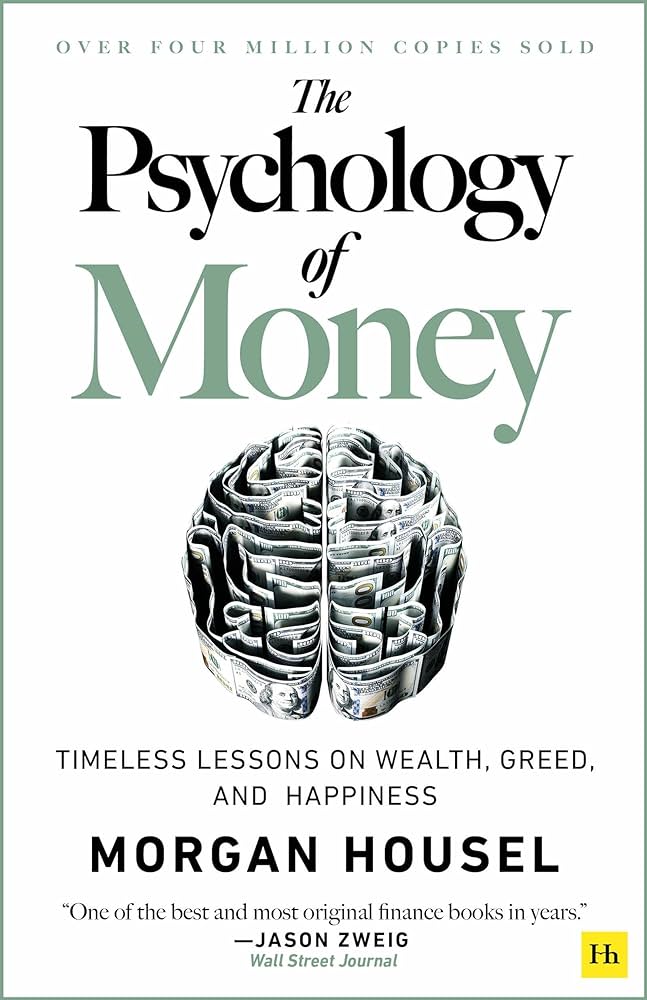
The Psychology of Money by Morgan Housel is a captivating exploration of financial decision-making through the lenses of history and psychology. Here are five takeaways from the book:
- Financial Success Is Not About Formal Education or High Income: Housel contrasts two individuals: Ronald Read, an uneducated janitor who invested wisely and left millions in his will, and Richard Fuscone, a finance professional who lost everything due to overspending during the 2008 financial crisis. The lesson? Financial success depends more on **soft skills**—how we manage our psychology and emotions—than technical financial expertise.
- Understanding Our Biases and Emotions: Our backgrounds and childhood experiences shape our perception of money, risk, and financial management. Recognising our biases and emotional impulses is crucial for making rational decisions about money.
- Long-Term Thinking and Patience: Housel recommends holding long-term diversified stock portfolios and allowing them to compound over time. Patience pays off; avoid chasing short-term gains and focus on the big picture.
- Ego and Humility in Finance: Ego-driven spending on status symbols can hinder financial success. Humility and a wary attitude toward the future are essential for making sound financial choices.
- Margin for Error and Saving for the Future: Always operate with a margin for error—unexpected events happen. Save consistently for the future, even if it’s a small amount. Compound interest works wonders over time.
The Psychology of Money emphasises that financial well-being is not just about numbers; it’s about understanding ourselves, managing emotions, and making thoughtful choices.
Leave a Reply